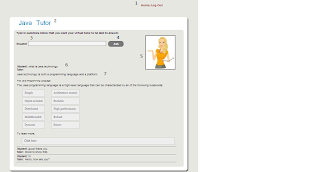Investigation and Development of
a Networking and Cyber Security Lab
Fungai P. Mundoma
Abstract
The world we live in today is centered around computer networks and the internet and until
recently, the security vulnerabilities online have not been fully addressed. This project is
based on raising the awareness of networking and cyber-security by designing a course
structure for this subject as there is a predicted shortage of professionals in this area. Firstly,
an investigation was carried out on the existing networks and current trends of cyber-
security to get an in depth understanding of how these networks are exploited. The second
step was to design a 24 week course structure that would address issues identified in the
investigation and ensure students can understand and prevent network exploitation from
online attackers. A website has been developed to contain all the study material for
students which includes videos and practice questions for better understanding.
An isolated Local Area Network was created in room NW202 as a testing lab for students to practice the material listed in the course. The network was created using a Cisco 2960 series switch and a Cisco ASA 5510 series working as a router and firewall. The firewall implementation was carried out on two different platforms, with the first one being a software firewall used on a virtual network environment and the second one being a hardware firewall implemented in the University lab. A network intrusion detection system has been implemented to demonstrate the importance of enhanced security measures on the network by enabling the detection and monitoring of suspicious network traffic. Another network security measure implemented was the use of a virtual private network (VPN) for users to access internal network services from outside that network but through and approved secure tunnel.
An isolated Local Area Network was created in room NW202 as a testing lab for students to practice the material listed in the course. The network was created using a Cisco 2960 series switch and a Cisco ASA 5510 series working as a router and firewall. The firewall implementation was carried out on two different platforms, with the first one being a software firewall used on a virtual network environment and the second one being a hardware firewall implemented in the University lab. A network intrusion detection system has been implemented to demonstrate the importance of enhanced security measures on the network by enabling the detection and monitoring of suspicious network traffic. Another network security measure implemented was the use of a virtual private network (VPN) for users to access internal network services from outside that network but through and approved secure tunnel.
The University of Northampton's, Department of Computing and Immersive Technologies offers five courses within the MSc Computing postgraduate provision (shown below) all available either part-time or full-time.

